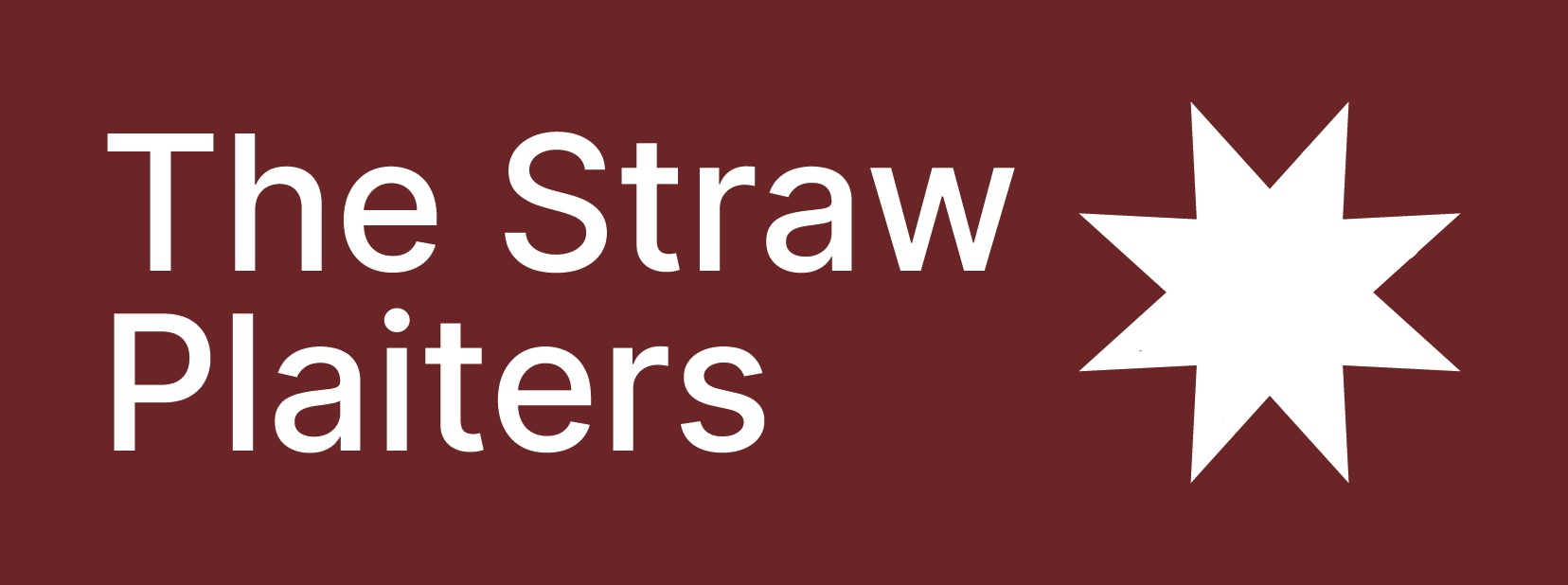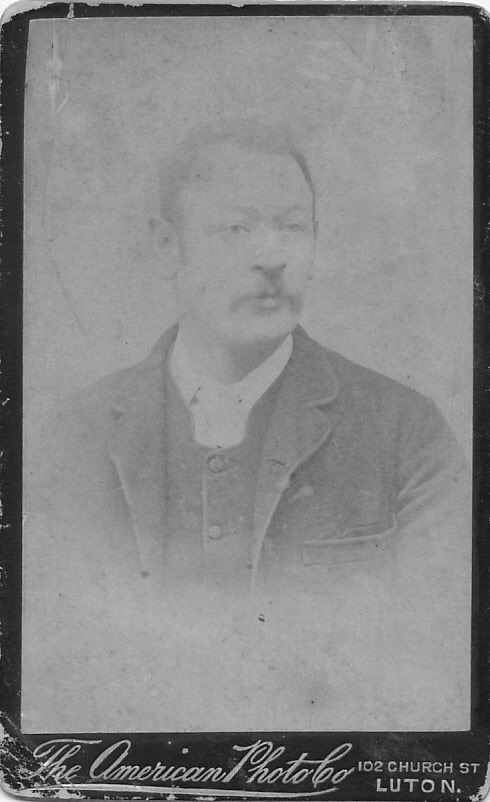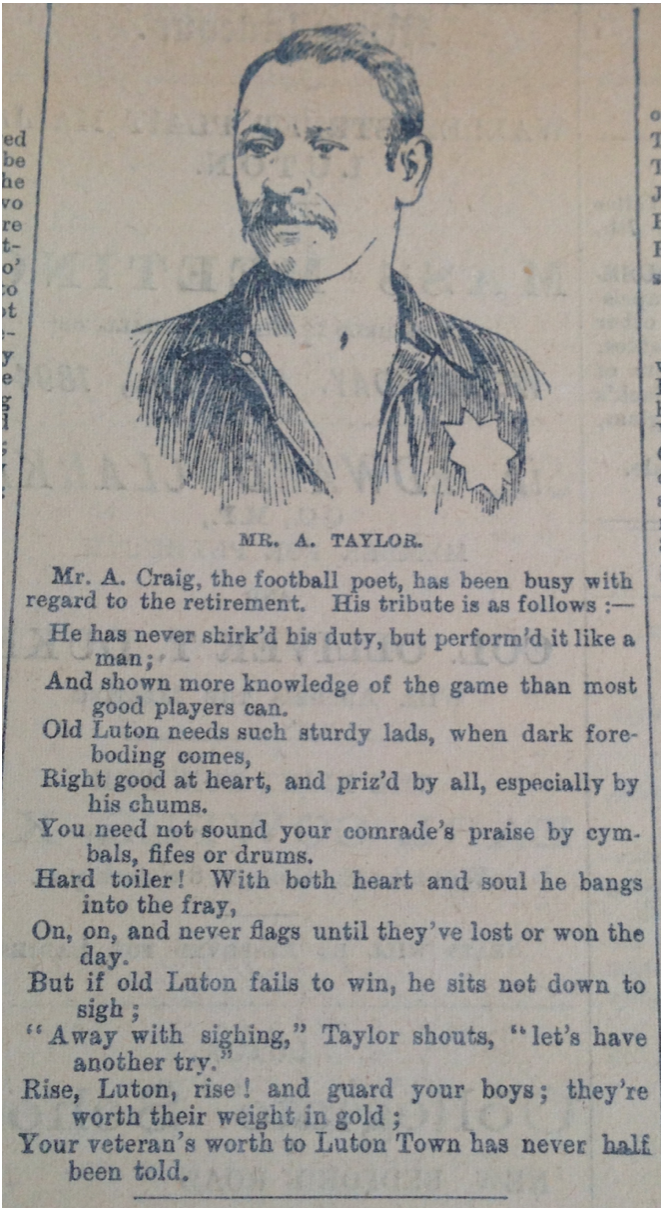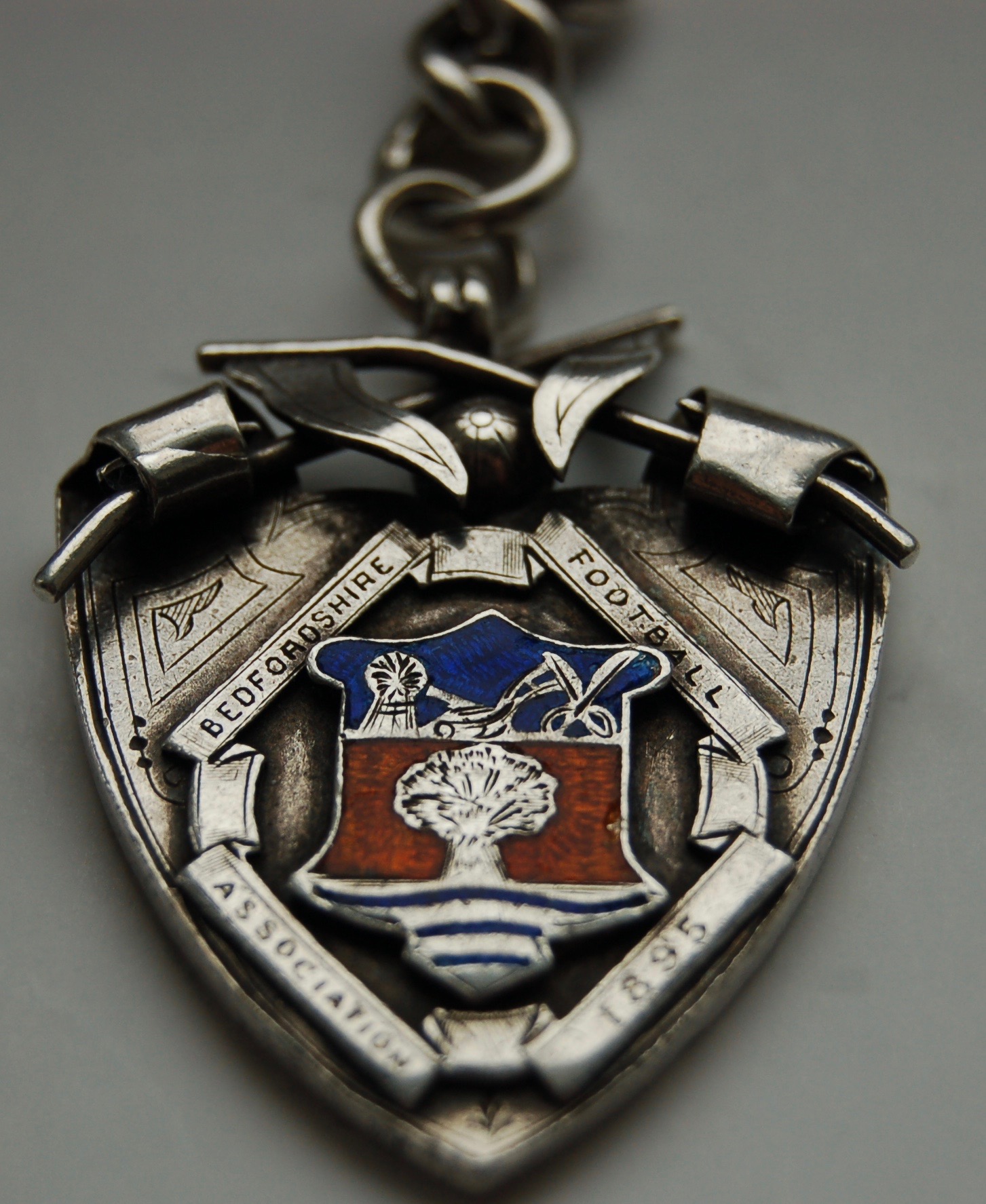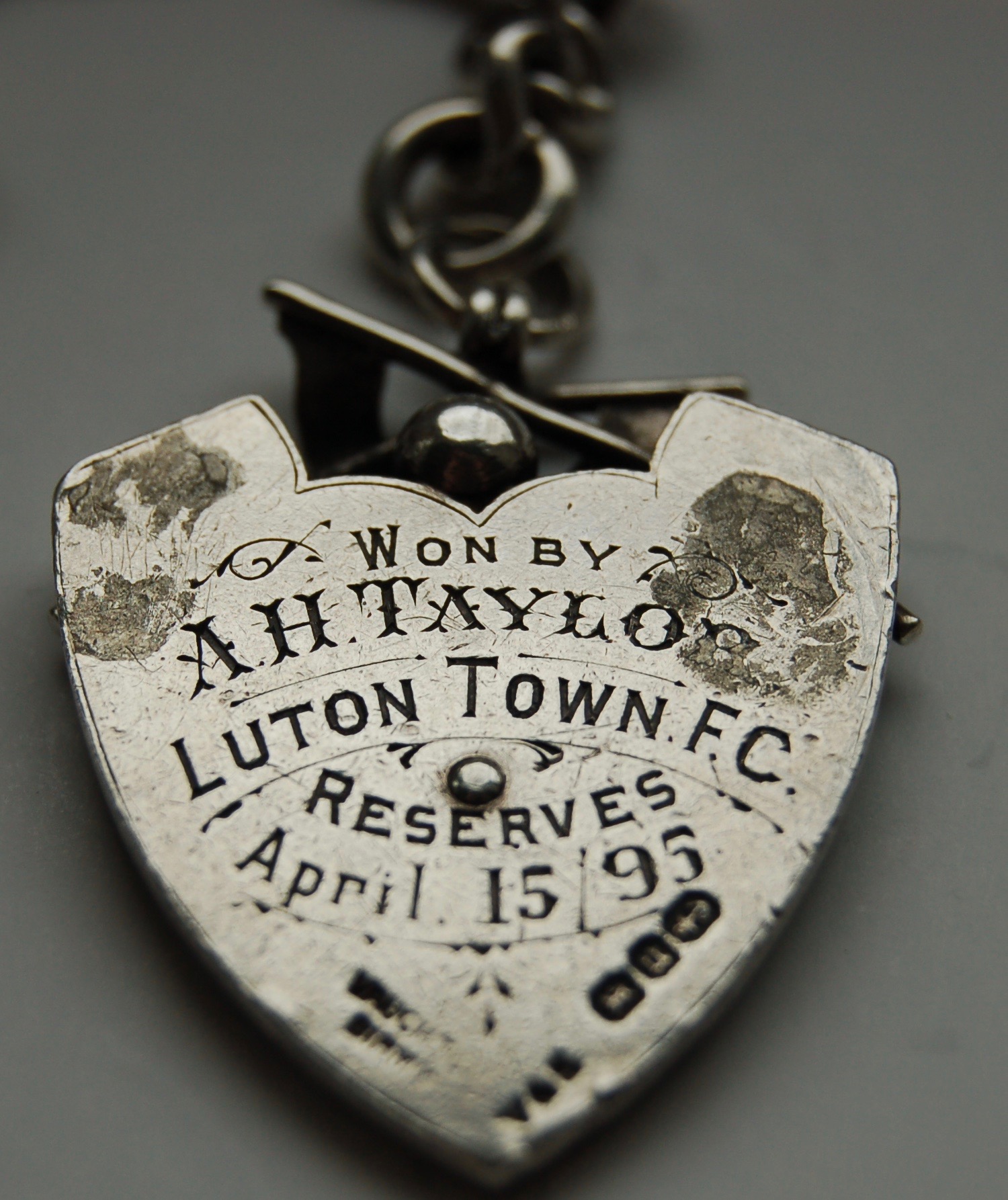ARTHUR HOLEY TAYLOR
Arthur was born in Market Rasen, Lincolnshire in 1860. He married Ann on the 17th July 1881 in Bedford. They had two daughters, Annie born in 1883 and Mabel born in 1885.
We are fortunate in having a biography from the Luton News of November 1892.
“The first time the popular captain played in Bedfordshire was ten years ago at Luton, for Bedford against the Wanderers. He was afterwards captain of the Bedford team, and was occupying that position when they were in the final for the Wellingborough and District Cup. Rushden then beating them by a goal to nil, and he was also included in the team for for Bedfordshire against Huntingdonshire two or three times. He played for the Wellingborough and District Cup Association in their county matches on several occasions, and likewise in their trial matches North v South. Mr Taylor has had the honour of representing the East Midlands in their county matches with London, Cambridgeshire, Oxfordshire and Lincolnshire. In addition to this, Mr Taylor was identified with Luton football before the Town Club came into existence, having played for the Wanderers and the old Excelsiors, but of course it is for his services in connection with the Town Club that he has made himself best known and appreciated by Lutonians. He has played for the town ever since the formation of the club, and took part in the final for the Kettering Cup two years ago against the Grantham Rovers. As captain of the present team, Mr Taylor has made himself extremely popular, both with the members and with the general supporters of the Club. As is well known, his position in the field is at half-back, on the left, and he always manages to render a good account of himself, keeping, at the same time, a watchful eye on the rest of the eleven, and seeing that each one is in his proper place. The captain is a very powerfully built man, and is altogether as good a half-back as one would expect to come across in a day’s march. The best time to see the “boss” perform is when he is not quite satisfied with the work done by his forwards – and he hasn’t been on occasions – then it’s an odd thing if the opposing side are not severely put to it to save their citadel from capture. That Mr Taylor may long enjoy the position he now fills with so much credit to himself and the Club is the earnest wish of all lovers of the noble game in Luton.”
We are given more from the Luton News also from 1892.
“In 1886 he played against Derbyshire for the Wellingborough and District Association. In 1886, too, Grimsby Town F.C. having their left half-back laid up, sent for Mr Taylor to play in the final for the Lincolnshire Cup, and he, with the rest of the team, were kept at one hotel for a week before the match. He was eligible to play for Grimsby for three or four seasons. It will be news to some, perhaps, that the worthy captain is also a runner of no mean repute, having won five firsts and two seconds in quarter mile races; five firsts, three seconds and one third in 120 yards handicaps; one first in 150 yards handicap; two firsts, one second and one third in 300 yards handicaps; and two seconds in 220 yards handicaps. Among his prizes are a couple of marble time pieces, one won at Bedford valued at seven guineas and weighing over half-hundredweight, a large walnut tea tray with silver rail round, value five guineas, silver tea and coffee services, silver fish carvers, two silver cups, a silver watch, two silver cruets, a case of silver napkin rings, two silver and glass biscuit jars and other similar prizes. Not a bad record altogether.”
The newspapers did not know that the Luton Town committee had made an illegal payment to Arthur in January 1886. The first Saturday of 1886 saw Luton Town F.C. play Dulwich away at the Greyhound Hotel, Dulwich. The following committee meeting records that it was resolved that;
“Mr Taylor have 5/- for Dulwich expenses.”
This is the first mention of a player being paid. Arthur lived in Bedford and travelled to Luton by train for home games. For the away game at Dulwich he would have to leave much earlier and would have probably missed work altogether that Saturday morning. The club would have paid the train fare from Luton to Dulwich. However, the train fare from Bedford to Luton for Arthur was much less than 5/-. The only conclusion we can therefore draw is that the majority of the money was for loss of wages and therefore it must be classed as a professional payment. We have no evidence that Arthur Taylor was registered as a professional with the F.A. He definitely did not meet the residence qualification as he was not born in Luton nor had he lived within six miles of Luton for two years. Arthur Holey Taylor appears to have received the first professional payment in the South of England.
This is an important precedent as Arthur continued to live in Bedford for his entire career with Luton Town. Having received 5/- for the Dulwich game he would have expected no less for other away games. Interestingly there is no mention of this payment as a separate item in expenditure announced at the 1885/86 season Annual General Meeting. We only have the newspaper reports of the AGM which covers the financial statement read out by the Secretary. We do not have the full printed income and expenditure sheet. The payment to Taylor is not reported as a separate item by the newspaper. The committee were not that stupid. They should not have mentioned the payment in the club minute book in respect of Dulwich as it was evidence of a breach of F.A. rules. Another reason for keeping it secret was the potential envy from other players. The committee were not going to advertise a breach of the rules at the AGM – a public meeting with the press and probably some enemies present. So they hid the 5/- and any other such payments under a woolly description which was not questioned in the back-slapping atmosphere of the AGM. Each season the committee appointed two members of the committee to audit it’s own books each season.
Up to the end of the 1890/91 season, the club varied the captaincy of the team. J.C. Lomax, when he played, took that role the most up to that date. However, on the 7th September 1891, the committee made Arthur permanent captain for the whole of the coming season. He lost the captaincy when J.W. Julian joined the club in the Autumn of 1892. However, he was a great leader and continued to stir his men to greater efforts time and again. His consistency over his nine year career in the first team makes him a truly great player.
In January 1892 the London “Evening News” published an article on the club as they had reached the first round proper of the F.A. Cup. Arthur was described by the paper as follows;
“The captain of the club is A.H. Taylor, who plays left half-back. This sterling player first played for Bedford (about 10 years ago), and he was afterwards chosen to represent Bedfordshire and the East Midlands in their county fixtures. Taylor has played for Luton town ever since the formation of the club, and took part in the final for the Kettering Cup two years ago. He is a powerful half-back, sure tackler, and a good shot at goal. He keeps his team well together, and is very popular with the players as well as with the supporters of the club.”
He was also known for his long throw in.
Aged 34 and after nine years in the first team, Arthur decided to retire. The following is the Luton Reporter’s coverage of Arthur’s benefit match in May 1894;
“It was only fitting that the concluding match of the season should be intended as a benefit for Arthur Taylor, whose play at left half-back has been one of the most admirable exhibitions given by the Luton team. Mr. A. Roston Bourke [the noted referee and friend of the club], with that enthusiasm for football for which he is noted, fell into the idea and promised to bring a good London team down, and he well redeemed this. Unfortunately the weather was terribly bad, but despite this there was a good muster of sympathisers, a pronounced proportion of whom fully intended their attendance to be regarded as a token of esteem for the old player.”
The paper went on to cover the match and summarises as follows;
“Inasmuch as this will probably be the last season in which Taylor will don the colours of the Town Club we take the opportunity of presenting his portrait to readers. It is scarcely necessary to say very much regarding the veteran player : his praise is in the mouth of every football enthusiast, and none has been heard to say a word in disfavour of him. It may be repeated that the popular half-back has been prominently identified with Luton football for about 15 years, and since the formation of the Town Club he has rarely been absent from the ranks in an important encounter. During all these years his form has been consistently good, and though towards the end of this season it was apparent that the genial Arthur did not run with the same lissom movement as of old it was equally noticeable that his spirit of downright pluck and determination had not deserted him. As a half-back Taylor never posed as brilliant, but the best testimony to his usefulness is to say that the place which his retirement leaves vacant will be indeed difficult to fill. The veteran has played even under the worst of conditions, and occasions have arisen in which he was absolutely unfit to don his colours, but “never say die” was the motto which he had ever before him, and there is no single attender at the matches but fully admires this trait in his character. To mention Taylor’s engagements in matches for the Eastern Midlands some years ago would be to retail ancient history, but mention of the fact will serve to show that he has been deemed worthy of selection in the most important of local encounters. As a sprinter he has won many prizes; indeed, as an athlete he is a splendid example. Altogether the writer, speaking from a ten years’ acquaintance with Taylor, is heartily sorry to have to announce the retirement, but joins in the general chorus of praise and congratulation which has been showered upon the old player during the last few days.”
The poem below was published on the same date as his benefit match report.
At the AGM held on 28th May 1894 Arthur was presented with the proceeds of his benefit match. His presentation was the highlight of the evening and the club’s minute book says as follows;
“The next business was to present the sum of £50 to Mr A. Taylor the amount realised by the benefit match. Mr Shane (treasurer) made the presentation on behalf of the club and in a few appropriate words expressed the esteem in which Mr Taylor was held by the football public. Mr Taylor briefly returned thanks when after a few words from Mr Arnold a vote of thanks was passed to the Chairman for presiding and the meeting terminated”.
Arthur was persuaded not to retire and he played for the reserves in the 1894/95 season who won the first Bedfordshire F.A. County Cup, Arthur’s medal is below;
The 1901 census show him as a Beer House Keeper and coach body maker in Bedford. By 1911 Arthur and Ann were living with their daughter in Bedford. Arthur was a bodymaker at a Motor Works.
Arthur died in Bedford at the end of 1926.
Thank you Mark Gardiner for the photos of Arthur’s medal.
